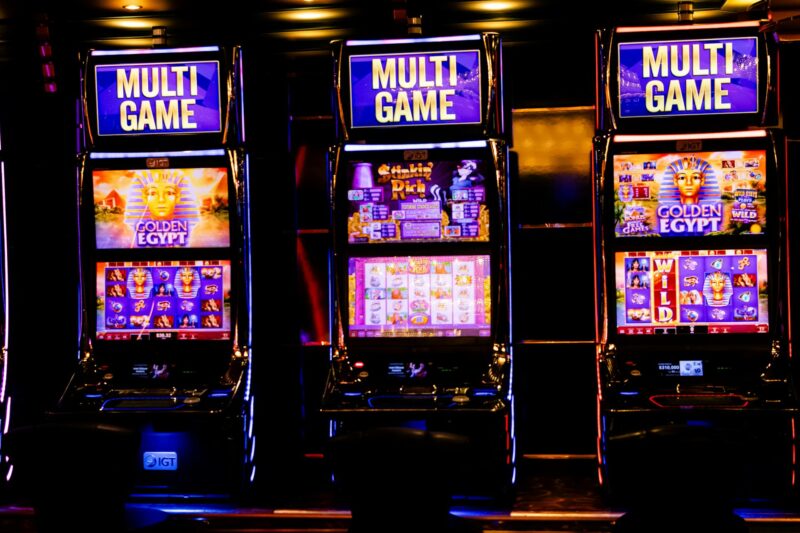
Imagine a world where gambling is thrilling but also transparent and fair. Blockchain technology is making this dream a reality, transforming the gambling industry in ways we’ve never seen before. By leveraging blockchain, casinos can ensure that every bet, win, and loss is recorded on an immutable ledger, offering unprecedented levels of trust and security.
As we explore the future of gambling, it becomes clear that blockchain isn’t just a buzzword; it’s a game-changer that has transformed online gaming from humble beginnings to a global phenomenon. From eliminating fraud to ensuring fair play, blockchain is setting new standards for how we experience online casinos. Let’s explore how this revolutionary technology reshapes the gambling landscape, making it more transparent and fair for everyone involved.
Overview of Blockchain Technology
Blockchain technology is a decentralized digital ledger that records transactions across multiple computers. These transactions are grouped into blocks, linked chronologically, and secured through cryptographic algorithms. This structure ensures data integrity and transparency since altering any information in a block is practically impossible without altering all subsequent blocks, which require consensus across the network.
In blockchain, every participant has access to a copy of the entire ledger, which enhances trust and transparency. Since network participants must validate each transaction, the risk of fraud significantly decreases. This peer-to-peer verification process ensures that data remains consistent and tamper-proof, making blockchain an ideal technology for industries requiring high transparency and security levels, like gambling.
Blockchain uses smart contracts, self-executing contracts with the terms of the agreement directly written into code. These contracts automate and enforce agreements, minimizing the need for intermediaries and reducing transaction costs. By utilizing blockchain, online casinos like DaVegas Casino can benefit from increased operational efficiency and enhanced user trust.
Advantages of Blockchain in Gambling
Blockchain technology enhances modern gambling by offering key benefits that revolutionize the industry’s transparency and fairness standards.
Transparency and Security
Blockchain brings unparalleled transparency and security to gambling. Transactions are recorded on an immutable ledger, ensuring all entries are visible and tamper-proof. This allows for audits and reduces the risk of fraud, building greater trust among players.
Anonymity and Privacy
Blockchain ensures anonymity and privacy for gamblers. Users can participate in games without revealing personal information, protecting their identities and providing a safer gambling experience.
Lower Transaction Costs

Blockchain significantly lowers transaction costs. Smart contracts automate processes, eliminating the need for intermediaries and reducing fees. This makes operations more cost-effective for both casinos and players.
Implementation of Blockchain in Casinos
Blockchain redefines how casinos operate by offering enhanced transparency, security, and fairness. This section explores its key implementations in gambling.
Smart Contracts
Smart contracts automate and enforce agreements. They eliminate intermediaries by executing actions once conditions are met, ensuring game results cannot be manipulated. Casinos and players benefit from reduced transaction costs and increased trust.
Decentralized Gaming Platforms
Decentralized platforms use blockchain to distribute control among participants. There is no single point of failure, boosting security. Players enjoy transparently verifiable games and direct transactions, enhancing reliability and integrity in casino operations.
Case Studies of Blockchain-Based Casinos
Successful Examples
Blockchain-based casinos have begun to set new standards in the gaming industry. One notable example is BitStarz, which offers both fiat and cryptocurrencies. It became popular for its provably fair system and exceptional customer service. Another example is Edgeless, which operates entirely on Ethereum and provides 0% house edge games. Players verify game fairness instantly.
Challenges Faced
While blockchain-based casinos offer many advantages, they face challenges. High transaction fees during network congestion can deter players. Regulatory uncertainty in various jurisdictions also poses a significant hurdle. Additionally, the requirement for technical knowledge can limit user adoption. Ensuring robust customer support for blockchain-related issues is crucial yet complex, requiring continuous improvement and adaptation.
Regulatory Considerations
Blockchain technology in gambling introduces unique regulatory aspects. As it disrupts traditional models, understanding the legal landscape and compliance challenges is essential.
Legal Landscape
Governments worldwide grapple with blockchain’s decentralized nature. Some nations view it favorably, crafting supportive regulations. Others, wary of its anonymity, impose strict controls or outright bans. Jurisdictions like Malta, Gibraltar, and the Isle of Man are pioneers in blockchain gambling regulations, fostering innovation yet ensuring player protection. In contrast, regions like China and South Korea impose stringent restrictions, hindering blockchain casino operations.
Compliance Challenges
Meeting regulatory requirements poses significant hurdles. Blockchain casinos must ensure transparency and fairness while navigating diverse legal frameworks. KYC (Know Your Customer) and AML (Anti-Money Laundering) regulations require stringent checks, contrasting blockchain’s anonymity appeal. Implementing these measures can be complex, expensive, and time-consuming.

Moreover, inconsistent regulations across borders add to the complexity, demanding adaptive strategies. Notably, acquiring licenses remains challenging, as authorities scrutinize blockchain operations closely for compliance and security standards.
Future Prospects
Technological Advances
The gambling industry anticipates innovations in the blockchain. Quantum computing and AI integration offer increased security and automated verification. Enhanced smart contracts can ensure seamless transactions and prevent fraud.
Market Growth and Opportunities
Blockchain gambling is on the rise. As trust and transparency become vital, more players will prefer blockchain casinos. The market could see a surge, attracting both players and investors alike and expanding opportunities worldwide.
Conclusion
Blockchain technology is revolutionizing the gambling industry by ensuring transparency and fairness. As we navigate the evolving regulatory landscape, understanding compliance challenges is crucial for the success of blockchain casinos. The future looks promising, with advancements like quantum computing and AI poised to enhance security and verification processes.
Blockchain’s potential to attract more players and investors is undeniable. As trust and transparency become paramount, we can expect significant market growth and global expansion in blockchain gambling. The journey ahead is exciting, filled with opportunities to redefine the gambling experience.


